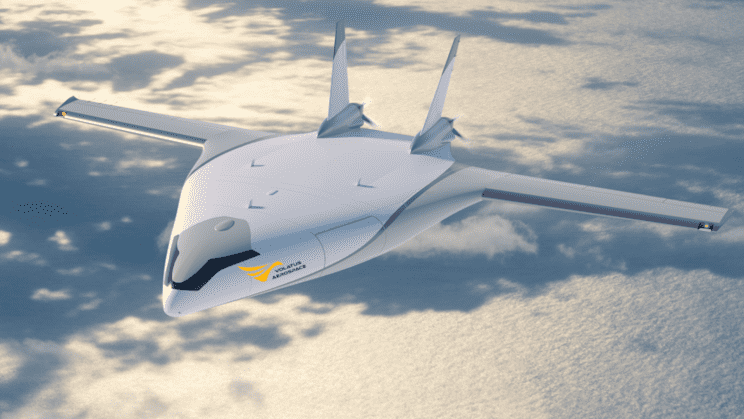Californian Startup “Natilus” is working on a new kind of unmanned aircraft that uses a unique blended wing body to fill up almost 60 % more cargo than an ordinary aircraft of the same size, with the first deliveries planned for around 2025.
The company designed an aircraft similar to NASA’s X-48 “green airliner” concept, featuring a blended wing body, which according to it, allows it to provide “an estimated 60% more cargo volume than traditional aircraft of the same weight while reducing costs and carbon dioxide per pound by 50%.”
The first model of Natilus, the N3.8T, will have a maximum take-off weight of 8,618 kg and a range of 1,667 km. It will be having the capacity to carry loads of up to 3855 kg. In its contribution to the model, the company has recently completed a second wind tunnel test of its twin-engine turboprop design. This is illustrated in the following video:
Quite like NASA with its X-48 concept, Natilus used a blended wing airframe to provide improved fuel efficiency. The body design is also suitable to bear more load than usual, allowing for more cargo space and reduced operation costs.
Further Natilus claims the costs and Carbon Dioxide emissions per pound will be reduced by 50%, compared to traditional air freight.CEO of Natilus, Aleksey Matyushev said in a statement, “Reducing the cost of airfreight by up to 50% will bring fresher produce into our stores, enable cross-border e-commerce to flourish, and enable low infrastructure regions to develop.”
Last year company entered an agreement with Siemens to utilize the engineering software of the company to continue developing its products. It has now signed an agreement with drone network operator “Volatus Aerospace”, which will now receive the first production N3.8T.

Many other companies are contributing a lot to improving air cargo efficiency among chain struggles caused by pandemics along with e-commerce demand. For example, Boeing announced its development of a new 777-8 Freighter, which would be having a 25% improvement in fuel efficiency. Another company called H2 Clipper is looking for funding to aid it to develop a zero-emissions airship concept.


